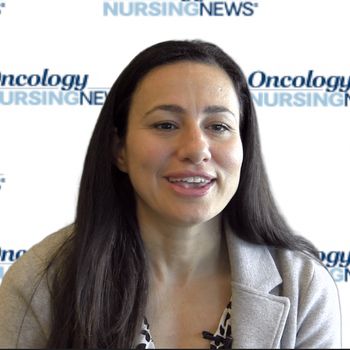
Nurses are key when it comes to treating patients with prostate cancer who are being given radium-223.

Nurses are key when it comes to treating patients with prostate cancer who are being given radium-223.
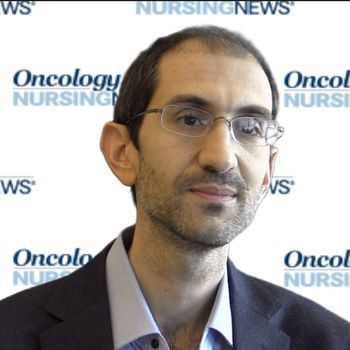

The results of genetic testing could change a patient's treatment regimen.

Cell-free DNA could be the next big breakthrough in detecting gastrointestinal cancers, according to Brian M. Wolpin, MD, MPH, director of the Gastrointestinal Cancer Center, and director of the Hale Family Center for Pancreatic Cancer Research at Dana-Farber Cancer.

There are socioeconomic and ethnic disparities in young adults who receive a diagnosis of colorectal and gastric cancers, according to Amir Khan, MD, from City of Hope.

The FDA's recent approval of olaparib for BRCA-positive pancreatic cancer is improving outcomes for many patients.

Supplements are well-tolerated (and can be beneficial) to patients with advanced pancreatic cancer, according to a small study.
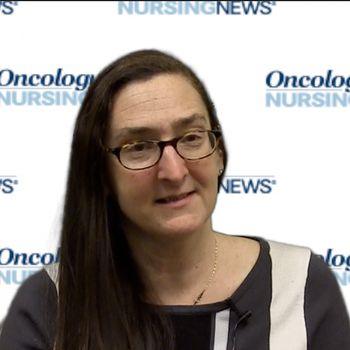
Combining ovarian suppression and an aromatase inhibitor is an efficacious treatment method for premenopausal women with breast cancer. However, the regimen (which is given long-term) can cause some major adverse events, explained Dawn L. Hershman, MD, MS, professor of medicine and epidemiology at the Columbia University Irving Medical Center.
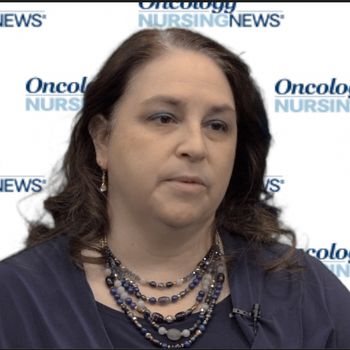
Do a head-to-toe scan when discussing adverse events for melanoma treatment, says a nurse practitioner.
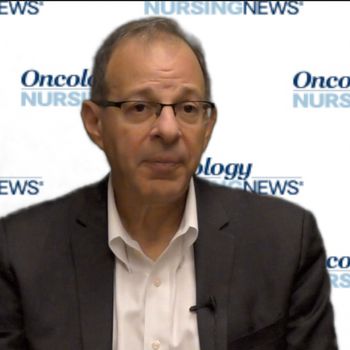
The future of melanoma treatment will include many combinations, explained Mario Sznol, MD, professor of medicine and co-leader of cancer immunology at the Yale Cancer Center.

Frequent communication between patients and providers is key in getting ahead of adverse events that can occur during breast cancer treatment, explained Madeline Kuiper, MSN, RN, OCN, an oncology nurse practitioner at UCLA.

While the regimen was overall well tolerated, there are some adverse events for nurses to look out for.


There are 3 major immunothearpy agents in the melanoma space. Hear one expert talk about them.

Myeloma therapies continue to improve, and maybe one day there will be a cure, says one expert.

Minimal residual disease status could cause patients undue stress.

It is important that nurses talk with their patients about what kind of adverse events to expect while being treated for HER2-positive breast cancer.

Nurses play a key role in treating patients with myeloma.


Patients who develop immunotherapy-related colitis tend to have better outcomes, so it is important to get them back on treatment as soon as possible.

As immune checkpoint inhibitors begin to reshape how to treat patients with cancer, understanding treatment-free survival as an endpoint in clinical research can better characterize the effects of the treatment.
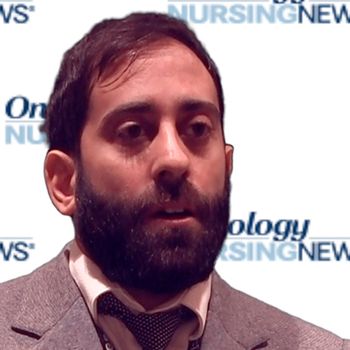
The first-in-human trial for tebentafusp findings are in, and they show promise for managing a patients side effects to it.

With new immune checkpoint inhibitors being utilized in treating patients with ICC, physicians need to study new ways to address irAEs associated with this treatment.

The past 10 years have shown significant updates for treatment of patients with thyroid cancer, beyond just targeted therapies.

Patients with neuroendocrine tumors have seen a slew of new treatment options, but experts believe these options need much more study before their promise is fully realized.

Immunotherapy in the neoadjuvant setting shows promise for patients with stage III lung cancer.

Future treatment for patients with the KRAS G12C mutation in NSCLC shows potential promise, according to a principal investigator studying the AMG 510 inhibitor.

The use of immunotherapy in tandem with chemotherapy is the future of treating patients with NSCLC, according to expert Catherine Shu, MD.
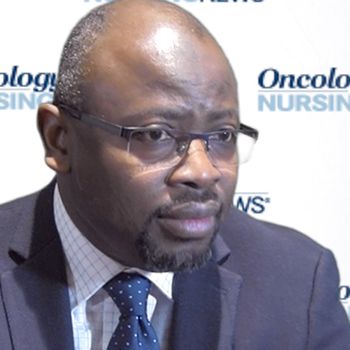
With the emphasis on testing for biomarkers to determine treatment for patients with lung cancer, it's important to make sure the testing will have an impact on clinical decisions.

While physicians are looking to further subclassify TNBC to narrow treatment options, not all of these classifications are actionable in the clinic.